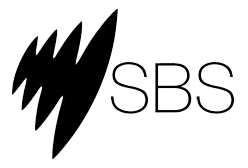Established in 1978, the Special Broadcasting Service (SBS) is one of two highly valued public broadcasters and one of five free-to-air networks in Australia.
 Labelled as the “voice and vision” of Australia, SBS prides itself in catering for the country’s diverse multicultural and multilingual population. Originally launched to provide special multilingual broadcasting services for ethnic communities, it has now grown to promote understanding and acceptance between all groups – linguistically, sociologically and culturally.
Labelled as the “voice and vision” of Australia, SBS prides itself in catering for the country’s diverse multicultural and multilingual population. Originally launched to provide special multilingual broadcasting services for ethnic communities, it has now grown to promote understanding and acceptance between all groups – linguistically, sociologically and culturally.
At present the organisation provides content in 50 languages online, over 60 on television and a record 74 languages on radio – more than any other broadcaster in the world.
Considering its size in comparison to other PSBs – like the BBC, ABC and NHK – the reach of SBS and its commitment to its audience is truly extraordinary. The organisation currently operates five radio networks and five television channels nationally, with an On-Demand service available via SBS Online. SBS launched its fifth television service, the Food Network, in Novemeber 2015.
With the assistance of a substantial government grant, SBS launched a new free-to-air channel dedicated to the indigenous peoples of Australia. At a cost of AUS$15million per year, National Indigenous Television’s (NITV) content is based on that which promotes aboriginal culture and is produced for and by indigenous communities. This includes a nightly news programme, documentaries, films, current affairs and children’s programming.
SBS provides multilingual and multicultural radio and television services that inform, educate and entertain all Australians and, in doing so, reflect Australia’s multicultural society
Despite the Board of Directors being appointed by the Australian Government, the SBS Act enshrines the organisation’s editorial independence. The government also provides around 80% of SBS’s funding, with the rest obtained from advertising, sponsorship and the sale of goods and services.
Yet like many PSBs worldwide, SBS is experiencing substantial commercial and competitive pressures as audiences turn to commercially driven entertainment channels and online sources for content and information. Moreover, cuts to funding from the government have been made in recent years that threaten to undermine SBS’s ability to provide such a plural audience.
Despite these setbacks, SBS continues to thrive as an exemplar broadcaster and has taken to the challenge of providing impartial and relevant content across a number of platforms. In mid-2015 SBS teamed up with US tech company Audio Now to make SBS Radio available via mobile phone to listeners in Australia, the US and the UK. The service does not require a smartphone or apps, and uses voice minutes rather than data plans.
For more information about SBS, click here.
Year established: 1978
Digital standard: DVB-T2
Web address: www.sbs.com.au
Full member: True
Main funding source: State-direct
Ownership: Commonwealth of Australia
Related Posts
5th November 2013
International broadcasters in the battle for influence
The contest between public media brands…
10th December 2012
The true cost of broadcasting with public funding: accountability
A Manx tale: The CBA's Sally-Ann Wilson…